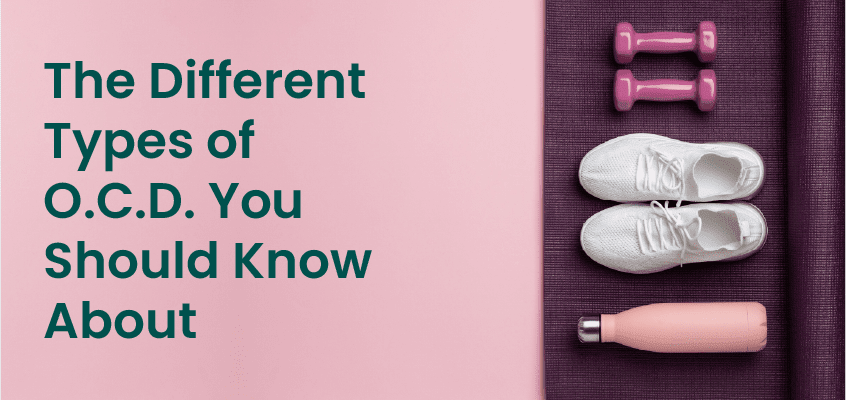Obsessive-compulsive disorder (O.C.D.) is a mental disorder in which a person experiences uncontrollable obsessions, leading to repetitive behaviours. This syndrome can affect a person at any stage of life. A study by the National Institute of Mental Health shows that about 1 in every 100 individuals in the U.S. has O.C.D. It is a disorder that can happen to anyone at any time and with varying intensity due to several factors. However, with the right kind of diagnosis and treatment or therapy, they get better at managing the disorder.
What is O.C.D.?
Obsessive-compulsive disorder is a chronic mental illness characterized by particular patterns of thoughts and obsessions.
Some examples of O.C.D. behaviours or compulsions are:
- Repetitive handwashing, continuous praying, moving objects unnecessarily or staring intently at something for unnatural periods.
- I am avoiding social interactions that act as triggers, such as meeting people or touching or looking at specific objects.
- Pulling out hair or picking at their skin, constantly hoarding objects, perceiving flaws in the appearance of their body, etc.
Types of O.C.D.
Classification of Obsessive-compulsive disorder is into four main categories:
- Trichotillomania
A person with this type of obsessive-compulsive disorder has an increased tendency to pluck out the hair on their head, body, eyebrows, etc. This thought develops into severe obsessions where they cannot abstain from plucking out their hair despite their urge to stop.
- Hoarding Disorder
This type of O.C.D. centres around the thought of saving or preserving things that they are possessive about, in this case, almost everything around them. A person who has a hoarding disorder often feels distressed at the thought of discarding any items. This leads to hoarding and stocking up on objects irrespective of whether they are useful.
- Dermatillomania
A person with Dermatillomania O.C.D. may be obsessed with picking their skin. This is a compulsive action that involves both picking their skin as well as scratching and making bruises, injuries and scars. Dermatillomania also has other names, i.e., excoriation disorder or skin-picking disorder, which falls under the category of obsessive-compulsive disorder.
- Body Dysmorphic Disorder
In this sub-type of obsessive-compulsive disorder, the person keeps obsessing about the perceived flaws in their body – in terms of shape, size, skin color and texture, the shape of teeth, colour of eyes, etc. They also try to hide these features by wearing excessive accessories such as scarves, glasses, hats, etc. They also tend to wear oversized clothes to hide their body.
Causes of O.C.D.
Some of the main factors causing obsessive-compulsive disorder are:
- Biological Factors – Genetics
According to studies, genes from our ancestors are highly likely to influence the structure and functioning of our brains.
- Psychological factors – Trauma
The death of loved ones or witnessing a traumatic event can powerfully impact a person’s brain cells, creating a long-lasting effect on thought patterns.
- Environmental factors – Changes in the environment and stimulus
Any changes in a person’s personal or work life that keep making them uncomfortable and uneasy can slowly create a series of disturbances within their mind and create the perfect setting for O.C.D.
Treatment of O.C.D.
For people with obsessive-compulsive disorder, early intervention can lead to better brain functioning and early recovery. Doctors and mental health professionals try multiple treatment therapies and medications to treat this disorder effectively. Some of the primary treatment procedures include –
- Exposure and Response Therapy
The exposure procedure involves assisting the person with O.C.D. in facing their problems and learning how to tackle them—followed by a prevention procedure that stops the person from performing OCD-related activities. For example, if a person has organization O.C.D., the counsellor might expose them to a messy table and discourage them from cleaning it. It helps improve the person’s self-control.
- Cognitive Behavioral Therapy
It is a type of consultation therapy where the psychologist tries to understand the person’s view of the problems they are dealing with through conversation. The person starts to find comfort in sharing things with the psychologist and slowly follows their instructions to lessen their O.C.D. symptoms.
- Medications
Medicines such as Sertraline, Clomipramine, and Fluoxetine help balance the serotonin level in the body and thus lessen the symptoms of O.C.D. However, only a doctor can prescribe these medications.
Living with O.C.D.
Here are some practical tips to make a living with O.C.D. easier:
- Track the triggers of O.C.D. behaviours to help therapists better understand the condition.
- Opt for a doctor or psychologist as soon as you notice O.C.D. symptoms; this helps with early diagnosis and recovery.
- Get active; take part in meditation and yoga, which can help divert unwanted thoughts.
- Avoid using drugs and alcohol to cope with distress.
- Have patience and believe in the treatment; this helps a person accept their condition and develop a positive mindset to combat it.
Conclusion
Although O.C.D. is not permanently curable, you can control it and manage its symptoms. If you or someone you know has O.C.D., contact a doctor or psychologist as early as possible. If you’re looking for mental health care from the comfort of your home, United We Care supports you.
United We Care is an online mental well-being platform that can connect you with expert psychologists and life coaches who will ensure you live the best life possible. Bred from love and passion, United We Care gives you and your loved ones the ability to attain equal and inclusive access to support from the comfort of your home. Contact us today!
References
i) https://www.brightquest.com/obsessive-compulsive-disorder/types-of-ocd/
ii) https://www.stlukeshealth.org/resources/5-common-types-ocd
iii) https://www.ocduk.org/ocd/types/
iv) https://www.verywellmind.com/what-are-the-different-types-of-ocd-2510663
vi) https://www.webmd.com/mental-health/obsessive-compulsive-disorder
vii) https://iocdf.org/about-ocd/
ix) https://psychiatry.org/patients-families/obsessive-compulsive-disorder/what-is-obsessive-compulsive-disorder
x) https://iocdf.org/about-ocd/who-gets/#return-note-63-1
xi) https://www.singlecare.com/blog/news/ocd-statistics/











Comments are closed.